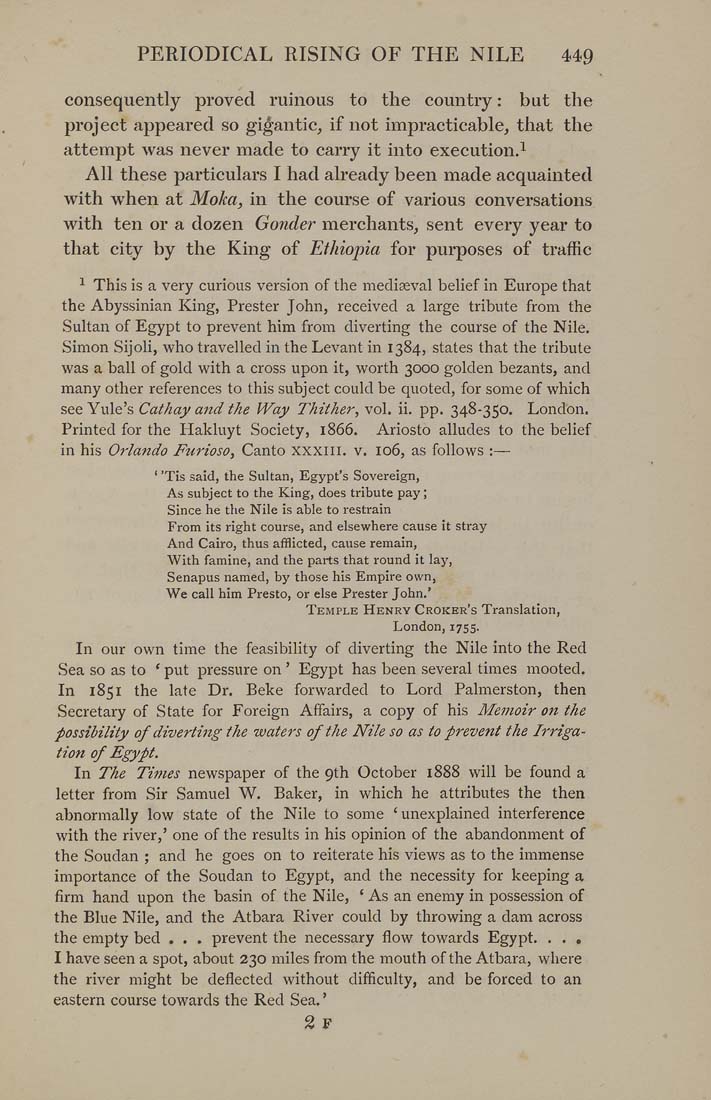PERIODICAL RISING OF THE NILE 449
consequently proved ruinous to the countiy: but the
project appeared so gigantic, if not impracticable, that the
attempt was never made to carry it into execution.!
All these particulars I had already been made acquainted
with when at Moka, in the course of various conversations
with ten or a dozen Gonder merchants, sent every year to
that city by the King of Ethiopia for purposes of traffic
^ This is a very curious version of the medieval belief in Europe that
the Abyssinian King, Prester John, received a large tribute from the
Sultan of Egypt to prevent him from diverting the course of the Nile.
Simon Sijoli, who travelled in the Levant in 1384, states that the tribute
was a ball of gold with a cross upon it, worth 3000 golden bezants, and
many other references to this subject could be quoted, for some of which
see Yule's Cathay and the Way Thither, vol. ii. pp. 348-350. London.
Printed for the Hakluyt Society, 1866. Ariosto alludes to the belief
in his Orlando Furioso, Canto xxxiii. v. 106, as follows :—
' 'Tis said, the Sultan, Egypt's Sovereign,
As subject to the King, does tribute pay;
Since he the Nile is able to restrain
From its right course, and elsewhere cause it stray
And Cairo, thus afflicted, cause remain,
With famine, and the parts that round it lay,
Senapus named, by those his Empire own.
We call him Presto, or else Prester John.'
Temple Henry Choker's Translation,
London, 1755.
In our own time the feasibility of diverting the Nile into the Red
Sea so as to ' put pressure on ' Egypt has been several times mooted.
In 1851 the late Dr. Beke forwarded to Lord Palmerston, then
Secretary of State for Foreign Affairs, a copy of his Memoir on the
possibility of diverting the waters of the Nile so as to prevent the Irriga¬
tion of Egypt.
In The Times newspaper of the 9th October 1888 will be found a
letter from Sir Samuel W. Baker, in which he attributes the then
abnormally low state of the Nile to some ' unexplained interference
with the river,' one of the results in his opinion of the abandonment of
the Soudan ; and he goes on to reiterate his views as to the immense
importance of the Soudan to Egypt, and the necessity for keeping a
firm hand upon the basin of the Nile, ' As an enemy in possession of
the Blue Nile, and the Atbara River could by throwing a dam across
the empty bed . . . prevent the necessary flow towards Egypt. . . .
I have seen a spot, about 230 miles from the mouth of the Atbara, where
the river might be deflected without difficulty, and be forced to an
eastern course towards the Red Sea.'
2 F
|








